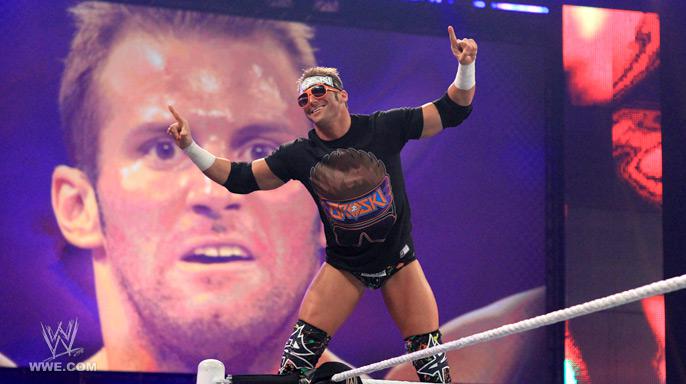Innovator to Rebel: Strain Theory and Zack Ryder
By: Richard Cossey
The story of Zack Ryder is one of the most frustrating for many wrestling fans. Ryder was a lower/lower mid-card talent who never seemed destined to rise any further up the card. He wasn’t bad per se, just fairly uninteresting. Then suddenly that changed. Ryder took to YouTube and his show, Long Island Iced Z, became huge. Fans were chanting his name at events that he wasn’t even participating in. ‘We want Ryder’ chants erupted during main events. WWE had to listen and they did. Ryder began getting featured on WWE TV and then inexplicably he was dropped again and fell like a stone to the same status he had before his rise. Now he is committed to starting again on social media and hoping that lightning will strike twice, though few expect this to be easy for him. This frustrates because he reached for the fabled brass rings, grabbed them and pulled himself up, only to find the rings had been oiled and he slipped off. The rise, fall, and future of Ryder can be neatly explained using Robert K. Merton’s social Strain Theory and may illuminate some aspects of Ryder’s motivation and provide an insight into where he goes from here.
Strain Theory states that the motivating factors for individuals are the goals put forward by society; money and success. Achievement of these goals is represented by status signifiers such as cars, homes, and clothes. Society gives us the means to achieve these goals through institutionalised systems, namely careers and professions. Merton states that although everyone in a society is conditioned to want the goals, not everyone has equal access to the means and so they have to find new ways to achieve the ends.
Those who have access to the means ‘conform’ and operate as society expects. For those who do not have access to the means, there are a few different ways to achieve the goals. The most common way is to partake in ‘innovation’ whereby different means are utilised; instead of working in a job for a number of years, one can find shortcuts and steal or use other socially disapproved of means. Another is to ‘retreat’, and reject the goals and the means and look for a way to escape the system. A third is to ‘rebel’; reject society’s goals and means and actively try to replace both.
In professional wrestling, the normalised goal is success, just as in the real world. The signifiers of this success are championship titles, appearing towards the top of the card, and getting screen time on TV and PPV. The means to achieving the goals are ostensibly the ‘brass rings’ that Vince McMahon has spoken of. Grab the brass rings, show what you can do, and you will receive a push. This is what those that conform do and what Zack Ryder attempted. Ryder, however, ended up languishing in obscurity as first an Edge lookalike and then a Jersey Shore parody, neither establishing him as a contender in the WWE.
So, Ryder ‘innovated’. He found a different route to success through social media. Long Island Iced Z was a ground-breaking foray into alternative media in which Ryder found he could connect with the fans. He was not getting screen time on the official shows, so he made his own show and gave himself every second of screen time. He even achieved another signifier of success in a championship belt, one that he created and awarded himself, the unsanctioned Internet Championship. Eventually, the WWE realised this had to be addressed and Ryder entered into an angle with John Cena, a sure sign that Ryder had achieved the systematic goals the WWE promotes.
But it did not last. Within a year, Ryder was already dropping down the card and now, five years later he is at the bottom. Ryder has a couple of options here. He can ‘retreat’ which in the case of wrestling essentially means to retire, or he can ‘rebel’. If Ryder were to reject the WWE defined goals and their signifiers and put in place his own goals, to create his own system, he can redefine what it means to be a wrestling success. He has already returned to YouTube, but now with the knowledge that rising to the top of the current system is no guarantee of continued success. To connect strongly with the fans through new media and eschew the traditional, legacy means, cutting out the middle man of the WWE and Vince McMahon, would enable Ryder to tour the world with his character. He could create a meta-narrative in which individual wrestling companies are meaningless, it is the fans that matter, the fans that connect the wrestling world together. We are currently seeing Matt Hardy gaining recognition for this approach, and maybe these rebels will become the new norm.
— Richard Cossey

